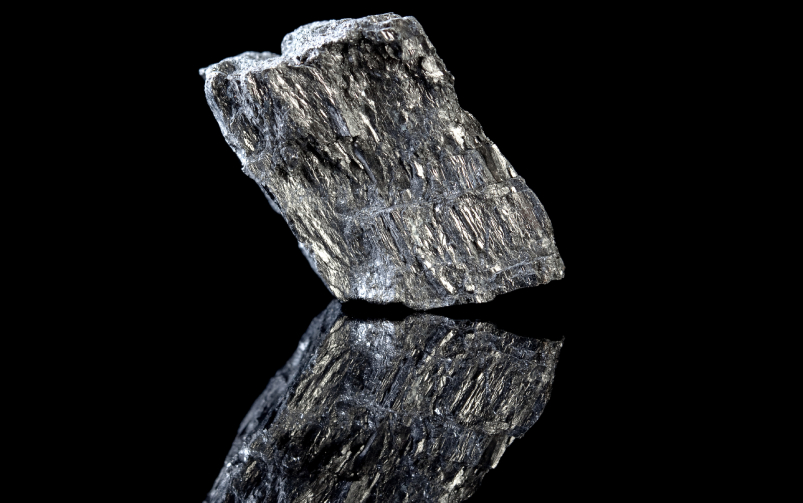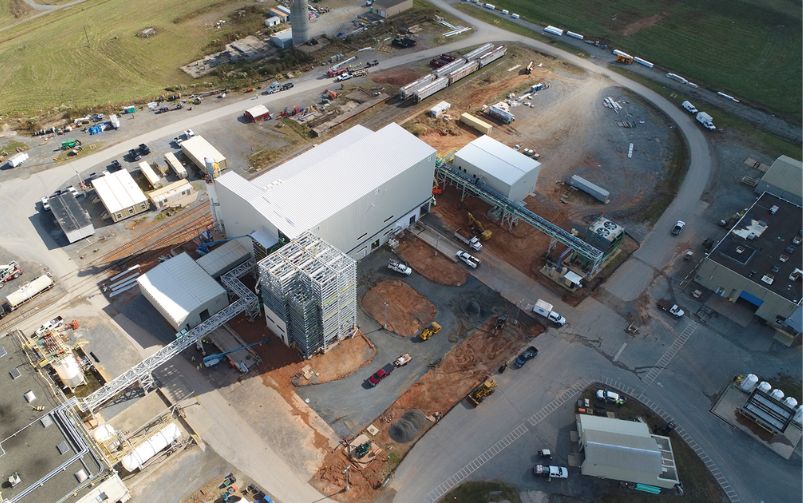(L-R) Richmond deputy André Bachand, Université de Sherbrooke vice-rector Vincent Aimez and Val-des-Sources mayor Hugues Grimard at a press conference announcing funding for a new research chair. Courtesy of the Ministry of Natural Resources and Forests.
The Quebec government has allocated $3 million over five years towards the creation of a new research chair at the Université de Sherbrooke that will focus on the recovery of critical minerals from asbestos mine tailings.
The funding from the provincial government will serve to establish and support the new research chair, which has been operating since the start of June. The research chair aims to increase knowledge on the concentration of critical minerals in the tailings and to develop processing methods to extract them.
Asbestos mine waste is rich in magnesium but also contains nickel. Both critical minerals are crucial in the energy transition due to their use in solar panels and electric vehicle batteries.
Gervais Soucy, director of the department of chemical engineering and biotechnology engineering at the Université de Sherbrooke, and one of two chairholders of the research chair, said the new funding will help the researchers undertake a variety of projects.
“Through this chair, we will train highly-skilled people—masters and doctorate students and technicians—to support the [mining] industry,” Soucy said. “We are also aiming to create an overview of the science and research that has been made over the last 50 years on the topic of mineral recovery. Then, we want to make this [scientific literature review] available to the public.”
With the review, Soucy said the goal is to determine which technologies are most efficient and promising in the recovery of minerals from asbestos tailings.
“We want to avoid reinventing the wheel and instead use what has already been researched to build upon it,” he said. “For example, some mineral recovery technologies made a decade ago were powered by combustible fuels, we want to see if we can use them with a more sustainable source of energy.”
The announcement was made in Val-des-Sources (formerly Asbestos and renamed in a 2020 referendum), where a large number of asbestos mines operated but are no longer active. However, around 800 million tonnes of asbestos mining waste is still present on these sites, according to the government. Val-des-Sources is situated 56 kilometres north of Sherbrooke, making the university a strategic location for research.
To avoid transporting the asbestos mine tailings, some of the larger research projects will take place directly at Val-des-Sources, while smaller-scale projects will take place at the university.




